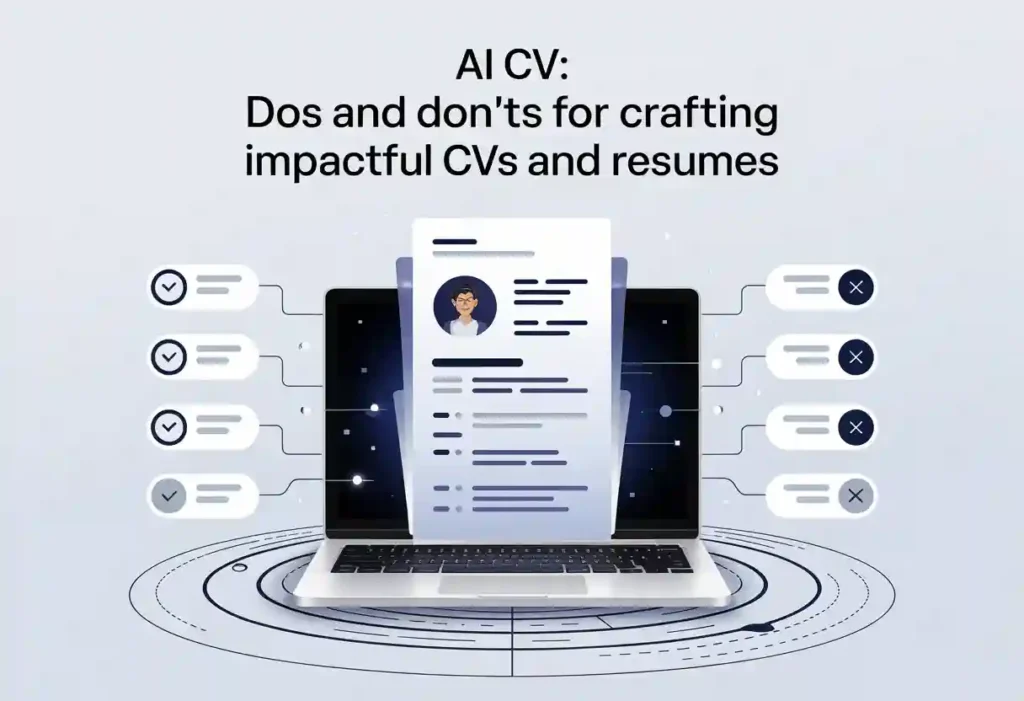Why Preparation Is Your Strongest Interview Advantage
A wise man once advised that if you have ten hours to chop down a tree, you should spend nine hours sharpening your axe.
This is how much you should pay attention to preparing for job interviews preparation.
It is 2025…and adequate preparation is the bridge between you and your dream job.
If you have been on the job-seeking journey for some time now, you will agree that your lack of preparedness makes you most nervous at the opposite end of the table. Your inadequate preparation makes you most nervous at the opposite end of the table.
However, 99% don’t know how to prepare for a job interview.
Meanwhile, preparation provides you with ideas about the organization and role, which in turn gives you some form of confidence.
This surely does not mean that you must not expect your question.
We are sure that even the recruiters do not expect you to know the correct answers to all their questions.
Therefore, what matters is that you answer the question from an appropriate angle.
Indeed, an angle that is well thought out instead of you rushing it.
Like this post?
Sign up for our blog updates and never miss a post.
We’ll send you A FREE job interview eBook as a thank-you.
Employers want to know two things: Can you do the job well?
And will you fit into the company/organization?
Often, candidates focus very narrowly on the first of these requirements.
Endlessly poring over their skills, proficiencies, and experience will prove they can do the job effectively.
However, people often forget that besides taking on a new role, new hires will join a group of people, each striving towards shared goals.
One piece of valuable advice that people sometimes overlook regarding job interviews is to research the organization.
What is their history? What are some of their goals?
How do they like to operate? Who are their key stakeholders?
Knowing this will put you in a better position to understand whether you would like to join this company and how you can convince your interviewer that you can fit in.

Being The Best Fit
Critically, you want to be the candidate who best fits the job description.
This means studying the job description, from key responsibilities to required skills and experience, and ensuring you can demonstrate how you meet each desired requirement.
If you can, spend some time on the additional/. It would be a plus if you also… section of the job description, as these factors will bring you closer to the head of the pack.
If you don’t seem to be able to hit at least 85% of the job requirements, the sad truth is that you may want to look elsewhere.
Or upskill yourself to a point where you can hit those criteria.
In the modern job market, it is unlikely that recruiters will look at your application if you can’t meet the core requirements.
Further Reading: Job Interview
- How to Demonstrate You’re the Right “Fit” for the Job
- How to answer: Tell Me About Yourself
- Best article on understanding our resume builder
- How to find a job
- Putting the work experience section in the CV rightly
However, as we have already mentioned, being the perfect fit isn’t just about being someone who can do the best job.
You also need to be able to fit into the company’s ethos and share and identify with its primary goals.
The best way to do this is to research the business as much as possible from online sources, friends, and other materials.
Tip
Try connecting with someone who works at the organization you want to join on LinkedIn.
Quiz them about the ethos of the company and some of its short and long-term goals.
Be Self-Confident
Although this is difficult to ‘acquire’, self-confidence can come from preparedness.
The more you know about yourself, the role, and the company, the more confident you can understand what the interviewer will likely throw at you in the job interview.
The trick here is to remind yourself why you want the job and why you would be good at it.
Once you have those two ideas clear in your mind, you can start to use them as motivation to boost your confidence in the job interview.
Remember, you have prepared and are a great candidate.
Another tip for building confidence is that the person sitting across from you is not ‘the enemy’ but another human being.
You will converse with this human being, and they will decide if you will progress to the next stage.
There are no hidden motives.
Another way to look at it is that your life doesn’t change for the worse if you don’t get a job.
No black mark goes against your name in a register!
And nothing happens if the organization says no.
From this perspective, there is no reason not to be as confident as possible and give it everything.
There is nothing to lose.
Further Reading
- How to build self-confidence
- The Importance of self-confidence as a skill
- How to write a resume like a pro
Show Your Value
Displaying your main positive attributes and selling yourself sometimes does not come naturally to some people.
But at the crux of every job interview is this question: How can you add value to our organization?
Rehearsing what you can offer the hiring business is one essential aspect of preparing for an interview, which should be completed.
You can do this with a friend or colleague.
It doesn’t have to be a massive list of all your strengths; pick out a few essential skills or experiences valuable to the organization you want to impress.
If there are no natural ways of getting these key points across in the interview, you can wait until the end.
At this time, the company representative will inevitably ask if you have anything else you would like to say.
Here you can rattle off some sparkling skills and valuable experiences.
By doing this, the interviewer goes away with some great key points about you as a candidate.
Tip
When identifying these key points, ensure you have an organisation-specific implementation example.
For example: “I have excellent interpersonal skills, which I learned from being a sales representative.
I believe these skills would be of great value when discussing issues with your clients”.
Key Takeaways
- Change your perspective ─ Yes, job interviews are important and exciting. Still, if you can take the pressure off yourself by understanding that there are no massive negative consequences to not getting the job, you may be more composed when the job interview comes around.
- Know your value ─ Spend time self-evaluating and pick out some awe-inspiring things, and be able to articulate these to your interviewer.
- Prepare, Rehearse, and Execute. Do the hard work, go through mock interviews with friends or co-workers, and nail the interview.
Besides that, the CVJury team wishes you the best of luck in your upcoming interviews.
Further Reading: Job interview success, look at our other posts
- Tips For Successful Interviews : How To Get More Interviews
- Best Answers To Four Personality Interview Questions



